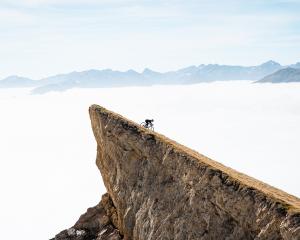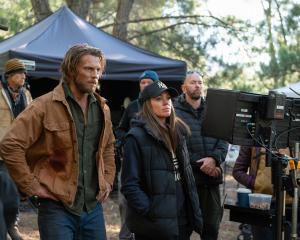A group of Queenstown ski enthusiasts headed into uncontrolled avalanche terrain at the Remarkables this week, ignoring verbal advice from skifield staff and a road closure, and so putting themselves and others at considerable risk, the Mountain Safety Council said yesterday.
NZSki chief executive James Coddington said the recent heavy snowfall made the Remarkables area "very prone" to avalanches.
The skifield now had a snowbase of 1.3m and people were impatient to enjoy it, he said.
However, they needed to heed avalanche warnings.
"It is a recreation reserve so we can't stop people going up the mountain, but we can close the road. Road closures always have clear signage and are vigilantly managed," he said.
People needed to act responsibly and respect all closures.
"If they don't, it is with great risk and disastrous results."
The road was closed after an avalanche caused by controlled blasting on the mountain, Mr Coddington said.
"When there's a risk of an avalanche, we drop avalanche bombs to make the terrain safer. We would prefer a controlled one [avalanche] rather than an uncontrolled one."
Emergency responses would take longer because the skifield was not operational, he said.
Staff would be doing more controlled blasting before the field opened on June 20, weather permitting, he said.
Mountain Safety Council senior avalanche, alpine and snowsport programme manager Steve Schreiber said the group who ignored the closure could have died.
"They blew off the advice and had a lot of people in potential danger. There is nobody around at this time of the year to rescue them; [most] skifield staff haven't started yet.
"This placed the individuals at risk and also created a risk for the potential rescuers," he said.
Skifield staff had the right to close the road and prosecute for trespass those who ignored the closure, he said.
The shoulder season was a period of "significant risk", especially because rescuers were traditionally ski-area and heli-ski operations staff.
"However, at present, ski-based personnel are not on duty and will not be until June," Mr Schreiber said.
He recommended people err on the side of caution and consider the mountains as having high-danger rating until further notice.
Only the experienced and skilled should venture up the mountains.
"Travellers should avoid steep terrain and all run-outs below that steep terrain, and should leave their intentions with someone they know before departure.
"Travellers should also be skilled at self and companion avalanche-rescue techniques as, at present, response time for Search and Rescue could exceed the survival-probability window," he said.
Recent heavy snowfall and subsequent wet weather and vigorous wind had melted much of the snowpack and created flood conditions.
Skiers, snowboarders and climbers were very keen to head up and enjoy the new snow, but to do so was putting their lives at risk, he said.
Advertisement













